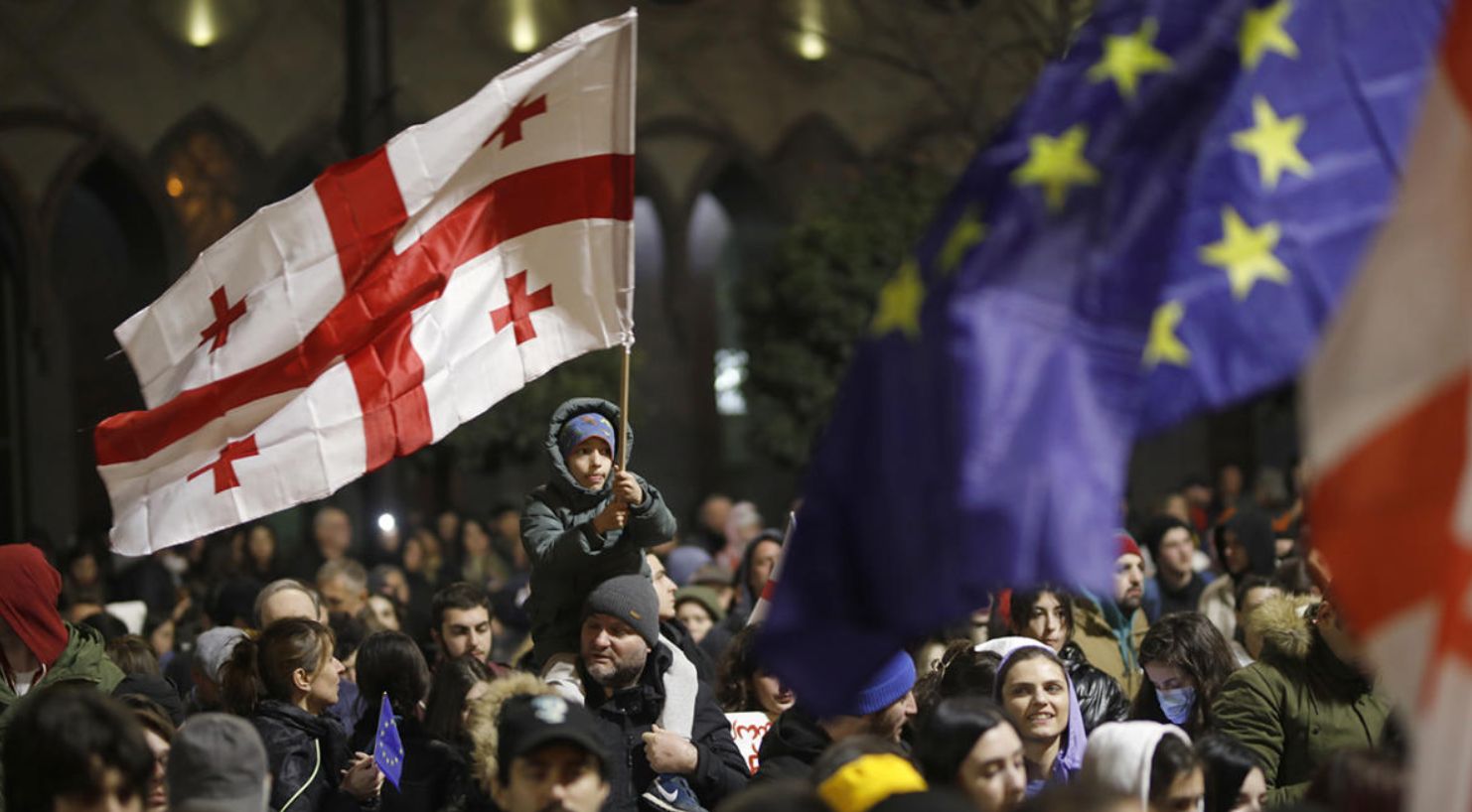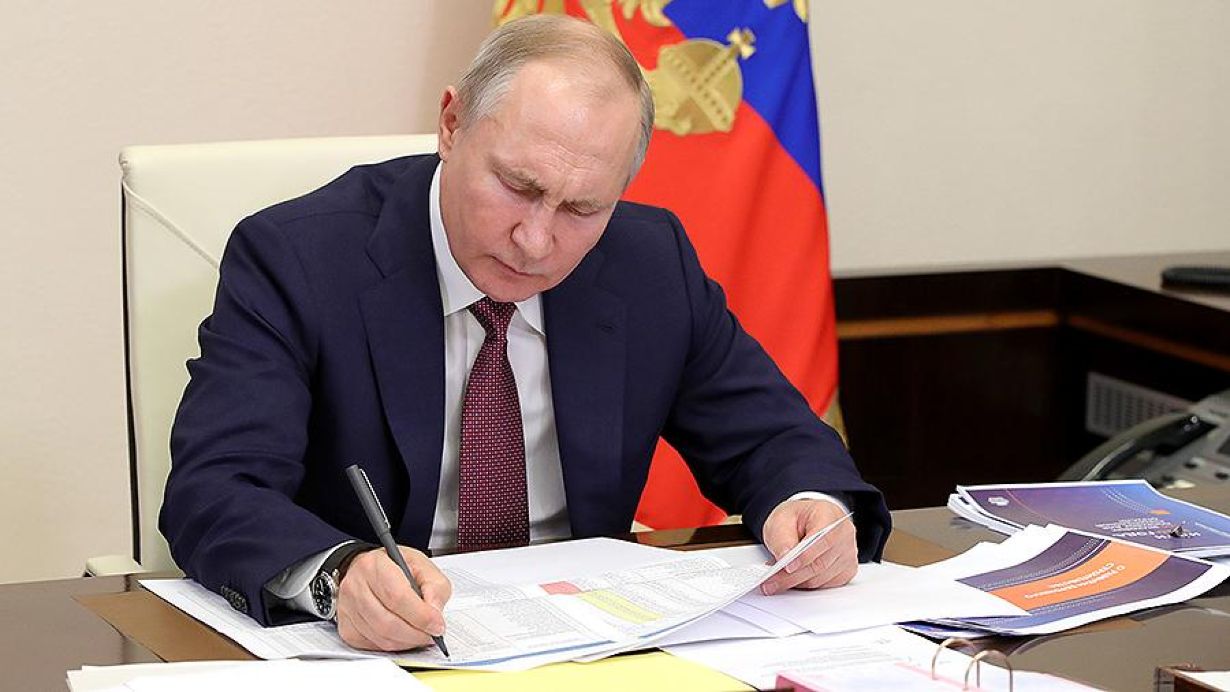Massive protests by the Georgians in the capital city of Tbilisi last week against a controversial draft law have forced the government to withdraw the law. What was the law, who supported it, and who opposed it? And what are the elements potentially active behind the scene?
A closer study of the case will show that Georgia will likely go the way Ukraine has. There is a voice, though not loud enough yet, asking that the West should seek the assistance of Saakashvili, the former President of Georgia who had always opposed Russian hegemony.
Massive protests in Tbilisi were against a notoriously called the ‘foreign agent’ bill. If passed, it would force all NGOs and media who receive more than 20% of their funding from abroad to be included in a special register and submit an annual financial declaration. Failure to submit was punishable by a fine of $9,500.
The Georgian Ministry of Justice justified the law’s passing, arguing that it would expose “agents of foreign influence” in the country. Supporters of the law say that the US has similar legislation – the Foreign Agents Registration Act (FARA).
But opponents of the law condemn it as an attempt to mimic Russia’s crackdown on freedom of speech and a sign that Moscow’s influence was growing. Crucially, they see the law as a significant barrier to Georgia’s chance of joining the EU.
The EU is considering Georgia’s application for candidate status, and several senior EU officials have condemned the proposed bill. “Adoption of this foreign influence law is not compatible with the EU path, which the majority in Georgia wants,” the European Council president, Charles Michel, said in a tweet on Wednesday.

Otar Berov, a Georgian sports commentator who attended the rally, said he planned to continue to protest for as long as it takes. “The law is against its people. They are trying to cut us from the West and force us closer to Russia. But our future is not with Russia; that is clear,” he told the Guardian. According to the same paper, 85% of Georgians support EU membership.
In Washington, State Department spokesman Ned Price voiced solidarity with the protestors. “We urge the government of Georgia to respect the freedom of peaceful assembly and peaceful protests. We are standing with the people of Georgia and their aspirations,” Ned Price said.
The bizarre aspect is that Georgia’s President, Salome Zourabichvili, said she intended to veto the law if it crossed her desk, but the parliament can override her veto. Addressing the protestors, she told them they represented a free Georgia, a Georgia which sees its future in the West and won’t let anyone take this future away. Her address was recorded in the US, where she is on a visit.
However, Irakli Garibashvili, the Georgian prime minister, reiterated that he supported the law. He accused the opponents of being “destructive and radical.”
Which formation is opposing the bill is the crux of the issue. While the Georgian Dream has won elections on a pro-western platform, critics say Ivanishvili is pushing Georgia toward Moscow’s orbit and that despite overwhelming support for Ukraine in the country, the government has not joined the West in imposing sanctions on Russia.
Berov said, “The foreign agent law is just the tip of the iceberg. It has ignited long-standing anger about the government’s absurd pro-Russian stance.”
The Georgian Dream party has been the ruling party in Georgia since 2012. Its founder, the eccentric Russian-connected billionaire Bidzina Ivanishvili, is widely believed to exert control from the shadows. Who is this guy, Ivanishvili, playing behind the curtain, which could drag Georgia to a disastrous geo-political conflict with Russia?
Georgia’s richest man Bidzina Ivanishvili made his money in metals and banking in Russia, then cashed out and moved back home in 2003. Ivanshvili was elected prime minister of Georgia in October 2012. Thirteen months later, he stepped down after his party won the presidential elections, saying he had fulfilled his task.
He entrusted about $1 billion to Credit Suisse, but more than 100 million dollars of that sum was stolen by the bank’s manager Patrice Lescaudron. He was found guilty in February 2018 and sentenced to five years.

As anti-law protests go on, Mikhail Saakashvili – the former Georgian president known for taking Georgia out of the post-Soviet chaos through successful reforms and now living in exile because of an arrest warrant by home authorities has issued a warning.
He says his homeland is controlled by pro-Russian oligarch Bidzina Ivanishvili, who doesn’t hold any formal position in the government. He blames Ivanishvili for many of the country’s problems and accuses an oligarch of usurping power. Saakashvili alerts that this may lead Georgia to an uprising similar to Ukraine’s Maidan Movement.
That eventually would cause violence, destabilize Georgia and drive it into Russia’s arms against the people’s will.
Dark clouds are gathering over the sky of Georgia. Will the leaders of stature and courage come forward to stonewall a looming prospect of disaster likely to engulf the people of Georgia who have invested heavily in rebuilding their country after the chaos let loose by the implosion of the Soviet State in 1991?
- KN Pandita (Padma Shri) is the former Director of the Center of Central Asian Studies at Kashmir University. Views expressed here are of the author’s.
- Mail EurAsian Times at etdesk(at)eurasiantimes.com
- Follow EurAsian Times on Google News




